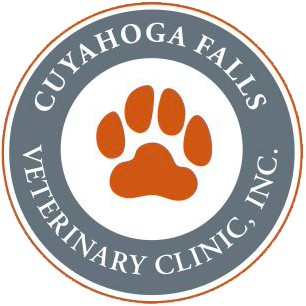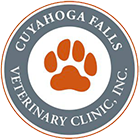|
So you just got a kitten and you’ve heard that there are some things you need to do for your him/her to get off on the right foot. Food is the first thing you had to think about, and truth be told, you already bought a bag before you found this post. No problem. You had to feed your furry feline something after you got home from with her. But you know you’ll need more than food, and when you think about collars, toys, litter boxes, toys… vaccines, toys, carpet cleaner and neutering… and toys, you’re starting to see more dollar signs than you anticipated at first.
Why didn’t someone tell you up front how much this was going to cost? How much is it going to cost? You want the best food, but there are some *really* expensive foods out there. How much are routine shots for your kitten? Do you really need more than one litter box? How many veterinary visits will you need? Wow. Wouldn’t it have been nice if there were some centralized list you could have read that would have told you how much to plan for?
Cuyahoga Falls Veterinary Clinic to the rescue!
Let’s break up this conversation into three categories:
- Warm, Fuzzy Wants and Fashion Desires
- Home Needs
- Preventive Medicine Needs
I’ll address Warm, Fuzzy Wants and Fashion Desires first because this will be the easiest to cover. What toys you purchase or Kitty Kondo Klimbers you decide to provide are completely optional. We’ve seen some kitten owners who have no regard for this category, but others totally splurge. It’s your choice. But… don’t spend all your resources here in that first trip to the pet store without first budgeting for the next two categories.
Home Needs consists of providing fresh water (nearly free of cost), quality food (will certainly be some cost), and litter box options (cost is variable). Regarding food, there are more good diets out there than bad diets, and some of the more costly diets have the best labeling and marketing, not necessarily the best nutrition. Choosing a good, reputable brand, such as Royal Canin, Hill’s, Iams, Eukanuba or Purina, will get you off on the right foot. Choosing Blue Buffalo, Halo, Innova and other such brands is okay, too, just be prepared to spend more for debatably-better nutrition.
I’ll raise the idea of microchipping here, because it’s not exactly a home need as food is, and it’s not preventive medicine, but it is a really good idea. Implanting cost ranges from $40 to $50 in most places, and there is a small annual fee associated with most of the brands.
Preventive Medicine Needs should not be shortchanged, as this category is critical to preparing your kitten for a healthy life. Unfortunately, we’ve seen more scenarios than we’d like where kitten owners have passed this category over thinking that indoor cats don’t need help in these areas. Nothing could be further from the truth.
We’ve addressed the topic of which vaccines are needed. You can visit that post for the specifics, but the take-home message for vaccines is: protect your kitten for the life-threatening diseases & for the quality-of-life threatening diseases to which he/she may be exposed.
Let’s talk cost, or more accurately, let’s talk expectations. It is important to point out that your veterinarian is the best source of learning specific dollar amounts for these services. Each veterinary clinic sets their fees independently based upon a variety of factors. At these visits, one often gets what one pays for. Low cost in this area will translate to quick shots and little time given to conversation about what’s important for you and your kitten.
For your financial planning purposes, it is important to know that your kitten will need to be seen by your veterinarian every 3 to 4 weeks beginning at 6 to 8 weeks of age until your kitten has passed 16 weeks of age. These intervals are important, and based upon a kitten’s immune system needs and requirements. They are also important because regular examinations allow your veterinarian to track your kitten’s progress.
All kittens should be tested for Feline Leukemia Virus (FeLV) and Feline Immunodeficiency Virus (FIV), as they are without cure and contagious to other cats. What if a kitten has a murmur? Or a hernia? Or a retained testicle? Your veterinarian will be able to determine if and how serious these might be. Some kitten owners like to do their own “vetting,” but don’t pursue anything less than the best for your young friend.
Getting back to immunizations, your kitten will need…
- 3 to 4 feline distemper vaccines – shorthand for Feline Viral Rhinotracheitis, Calivirus and Panleukopenia (FVRCP)
- 2 Feline Leukemia vaccines (often combined with the final 2 FVRCP in a kitten series)
- 1 Rabies vaccine
Your kitten ought to have at least 2 fecal exams to rule out parasites. On occasion, kittens will acquire Giardia from their initial environment, and the cost for diagnosis of Giardia is often additional to a routine fecal examination.
On the parasite front, plan on purchasing monthly heartworm preventive at the outset. Pharmaceutical companies will often provide veterinary clinics with samples of kitten-sized heartworm preventive for a kitten’s first visit, so ask your veterinarian if a sample is available. Revolution, which addresses heartworm, intestinal parasites and flea & mite control, is our preventive of choice for our feline patients.
There are many reasons why it is good and healthy for kittens to be spayed/neutered before they reach sexual maturity, and this cost should be budgeted at the outset.
The first year of kitty-ownership is often (though not always) the costliest. There are many responsibilities that seem to come in a short period of time, but these responsibilities are of the utmost importance if you desire the best for your kitty.
In summary, before your take on a kitten, inquire of a veterinarian you trust how much the following are going to cost:
- Routine examinations and vaccines
- Parasite testing and control
- Spay/neuter
- Potentially unforseen costs that can tend to pop up from time to time during kittenhood
If you account for these items beforehand, you’ll coast through kittenhood with ease knowing you’ve prepared for most of the major stuff. Still have questions? Give us a call at 330-929-3223, and we’ll be happy to address any question or concern you may have.


